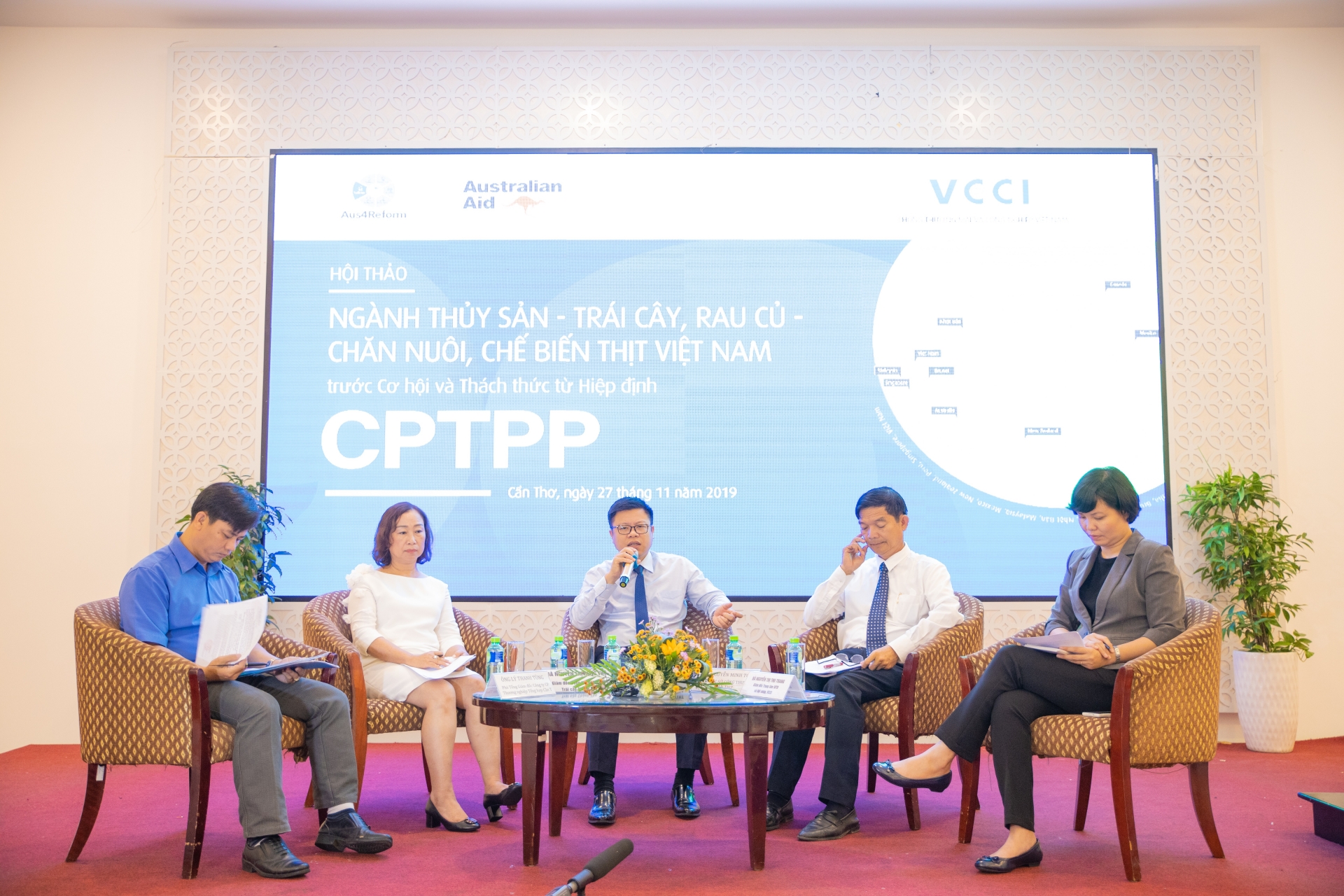Vietnamese businesses start to seize CPTPP opportunities
 |
The information was stressed at the seminar on Vietnam’s seafood, fruits, vegetables, livestock, and meat processing industries in anticipation of opportunities and challenges by the CPTPP on November 27, in Can Tho city. The seminar was organised by the Vietnam Chamber of Commerce and Industry (VCCI) within the framework of Australia’s aid programme to Vietnam.
Nguyen Thi Thu Trang, director of the WTO and International Trade Center under the VCCI, said that local companies are actively reaching out for opportunities now that the CPTPP is in effect. This is reflected in the number of businesses taking advantage of preferential tariff rates and certificates of origin issued by the Ministry of Industry and Trade. Among them, Vietnam has witnessed a surge in exports to Canada since the CPTPP took effect.
She noted that there are seven markets with which Vietnam has already signed free trade agreements (FTAs). Many of these FTAs have similar levels of commitments like the CPTPP. Thus, the CPTPP paves the way for companies to enter these markets, but it is not the only route.
In addition to tariff reductions, the CPTPP is expected to provide a push for Vietnam to reform its economic institutions. However, the results are not immediately visible because the progress needs strong commitments and a clear roadmap of implementation.
Some guidelines have been approved and the onus is now on businesses to study and follow them. As Vietnam makes efforts to fulfil its commitments under the CPTPP, this will help improve the investment climate and bring about a positive impact on businesses.
According to Nguyen Quoc Toan, director general of the Agro Processing and Market Development Authority under the Ministry of Agriculture and Rural Development, some industries have posted strong growth after the implementation of the CPTPP. Since the beginning of 2019, Vietnam’s exports of vegetables and fruits reached $3.5 million, in which CPTPP member countries like Japan recorded a 35 per cent increase. It is important to organise more seminars on exports to help Vietnamese firms take advantage of these opportunities.
On the same note, Nguyen Thi Thu Hong, director of Chanh Thu Fruit Export Co., Ltd., said that despite the preferential tariff rates, Vietnamese companies need to improve the production and processing of fruits and vegetable to conquer these potential markets.
“In particular, we should expand plantation areas, get codes for a variety of fruits and closely manage the plantation areas to facilitate market entry and avoid risks,” she added.
What the stars mean:
★ Poor ★ ★ Promising ★★★ Good ★★★★ Very good ★★★★★ Exceptional
Related Contents
Latest News
More News
- Foreign leaders extend congratulations to Party General Secretary To Lam (January 25, 2026 | 10:01)
- 14th National Party Congress wraps up with success (January 25, 2026 | 09:49)
- Congratulations from VFF Central Committee's int’l partners to 14th National Party Congress (January 25, 2026 | 09:46)
- 14th Party Central Committee unanimously elects To Lam as General Secretary (January 23, 2026 | 16:22)
- Worldwide congratulations underscore confidence in Vietnam’s 14th Party Congress (January 23, 2026 | 09:02)
- Political parties, organisations, int’l friends send congratulations to 14th National Party Congress (January 22, 2026 | 09:33)
- Press release on second working day of 14th National Party Congress (January 22, 2026 | 09:19)
- 14th National Party Congress: Japanese media highlight Vietnam’s growth targets (January 21, 2026 | 09:46)
- 14th National Party Congress: Driving force for Vietnam to continue renewal, innovation, breakthroughs (January 21, 2026 | 09:42)
- Vietnam remains spiritual support for progressive forces: Colombian party leader (January 21, 2026 | 08:00)

 Tag:
Tag:




















 Mobile Version
Mobile Version